Types Of Flies UK
Most of us know how irritating flies are, but you might not realise that there over 120,000 species of flies that are part of Order Diptera in the world. Since many species are typically found in tropical climates, as warm temperature make it easier for them to reproduce, there are only around 7000 of these species of flies in the UK.
Still, that’s more than enough! Flies are often seen during the spring and summer months, when they will fly around looking for a food source. Many common fly species eat decaying organic matter and sugary substances, and will congregate around fermenting fruit, animal or pet faeces, rubbish bins and leftover human food from picnics or other alfresco dining activities.
At Pest In Peace, we have extensive experience removing flies and other insects from properties across Cheshire. We know that it’s important that homeowners try and identify the species they’re dealing with, to make our job easier. That’s why we’ve put together this handy guide to types of flies found in the UK and how to identify and deal with them.
Common Flies In The UK
As mentioned, there are over 7000 species of flies in the UK, but these are the most common and how to identify them.
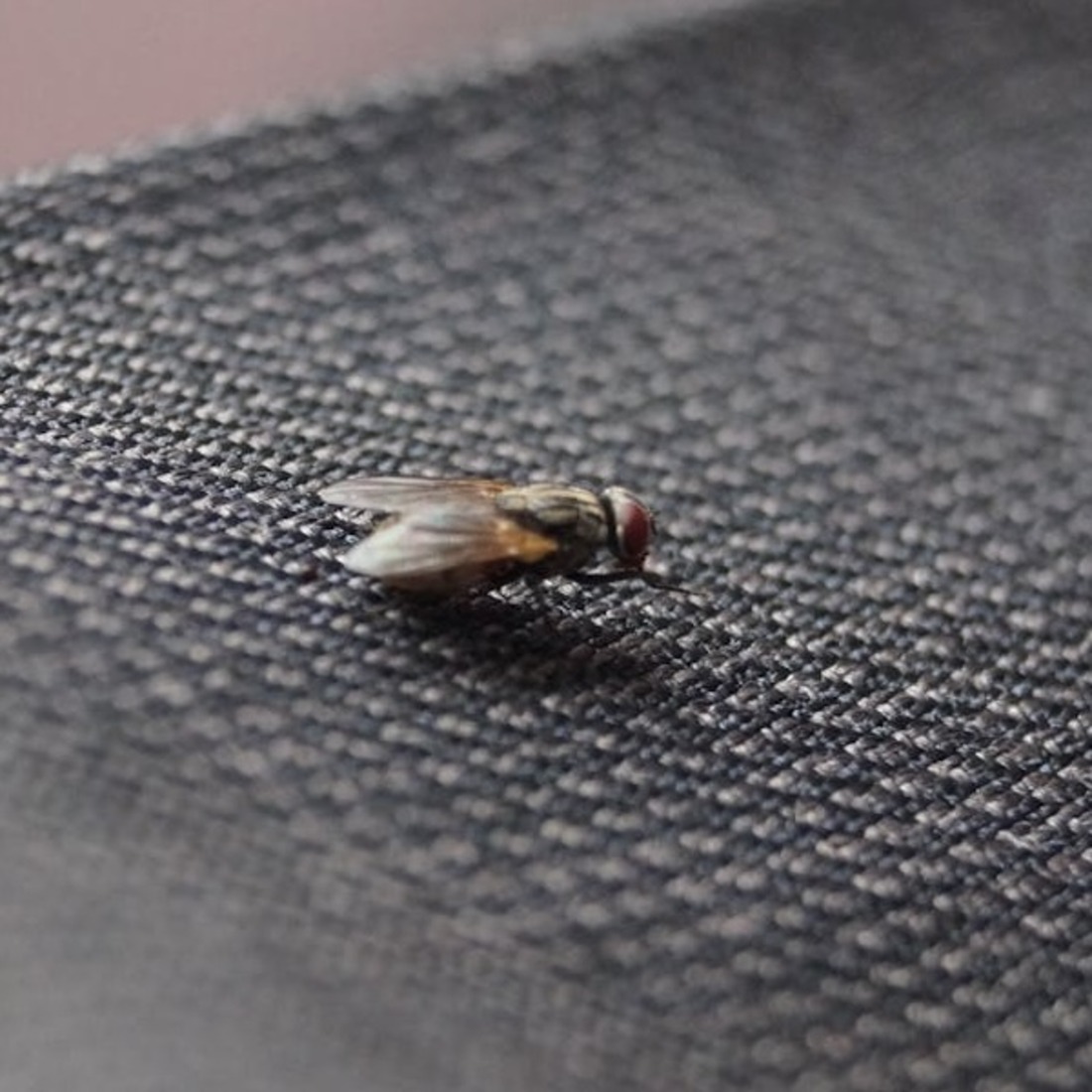
Houseflies
Houseflies, (Musca domestica), are what most people imagine when they think of flies. Found on most continents, these common flies are grey to black in colour with a metallic sheen. They have black stripes running down the length of their thorax.
With hairy bodies and clear wings, houseflies are easily identified and can be found throughout the UK. Female flies store sperm so they can fertilise eggs multiple times after mating, and can produce hundreds of eggs. Because they eat decaying organic matter, and often land on dead animals, dung or rotting waste, these flies can quickly contaminate food and are a particular menace in kitchens.
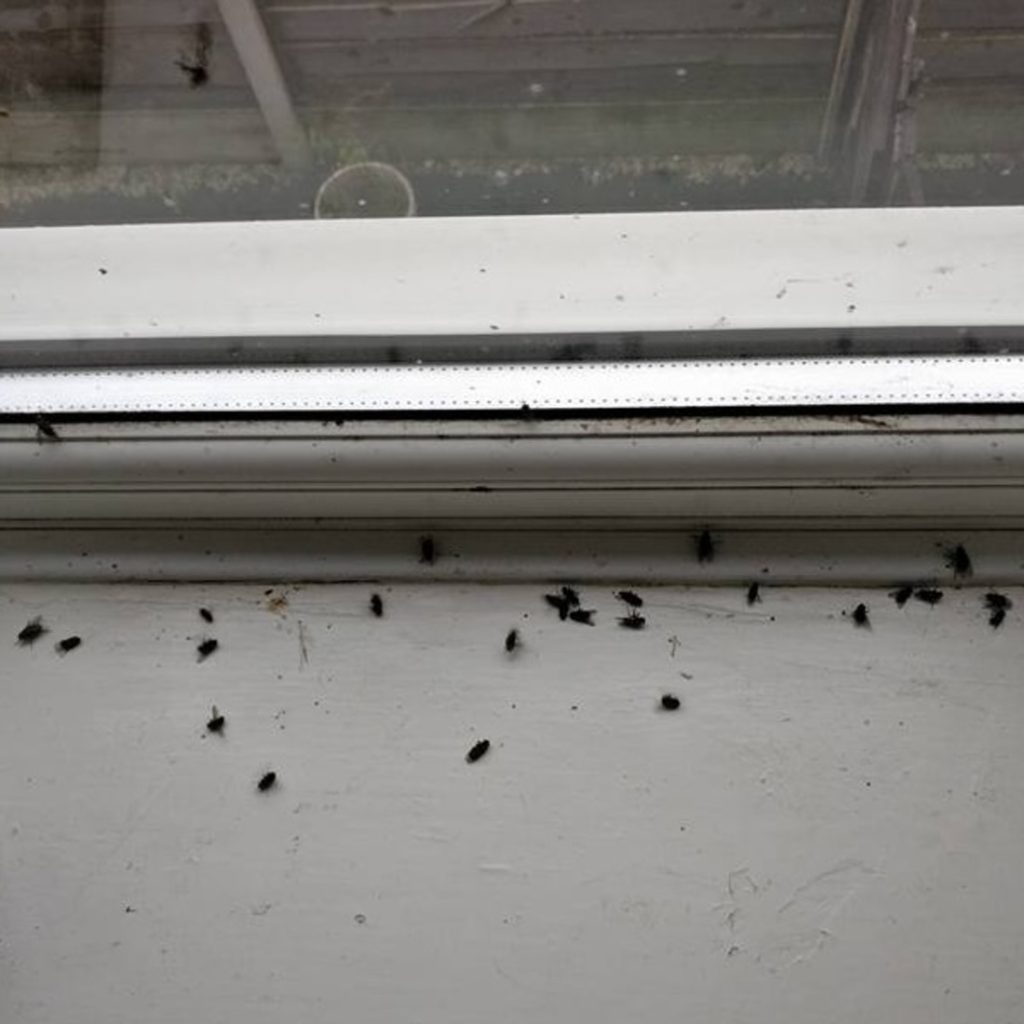
Cluster Flies
From the genus Pollenia, cluster flies are often found in large groups around attics or windows. Unlike other species, cluster flies are often a problem during colder months, when they move inside. When it is warmer, or if the radiator is on, the cluster flies will fly about and may cause a disturbance.
Cluster flies are parasitic, and the female flies lay their eggs near earthworm burrows, and once hatched, the larvae then feed on the worms.
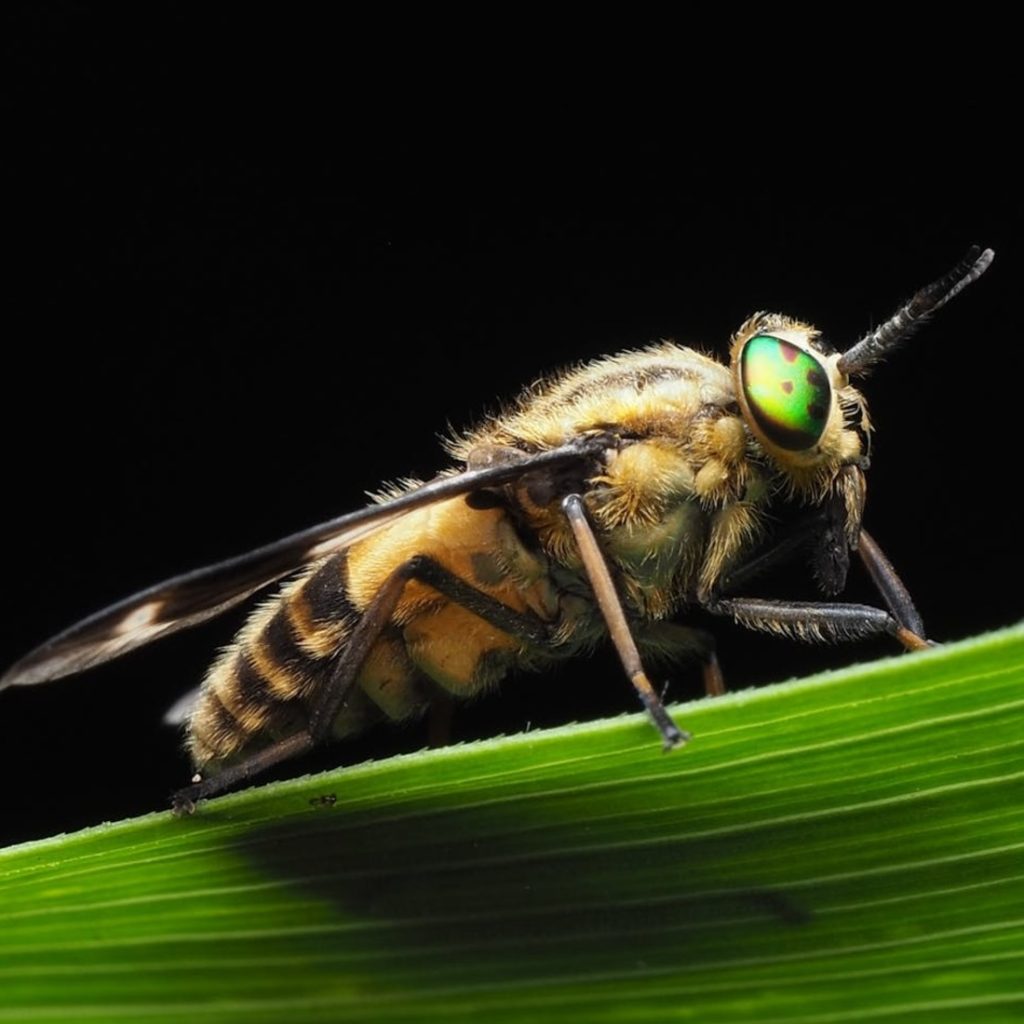
Horse Flies
Horse flies, and their close cousins deer flies, are both true flies of the order Tabanidae. Between 6 to 32mm in length, these are among the largest flies in the UK, and are often found outside and near bodies of water.
Female horse flies can bite humans, as well as horses and other warm-blooded mammals in search of blood to help with egg production. Being large flies, horseflies have painful bites.
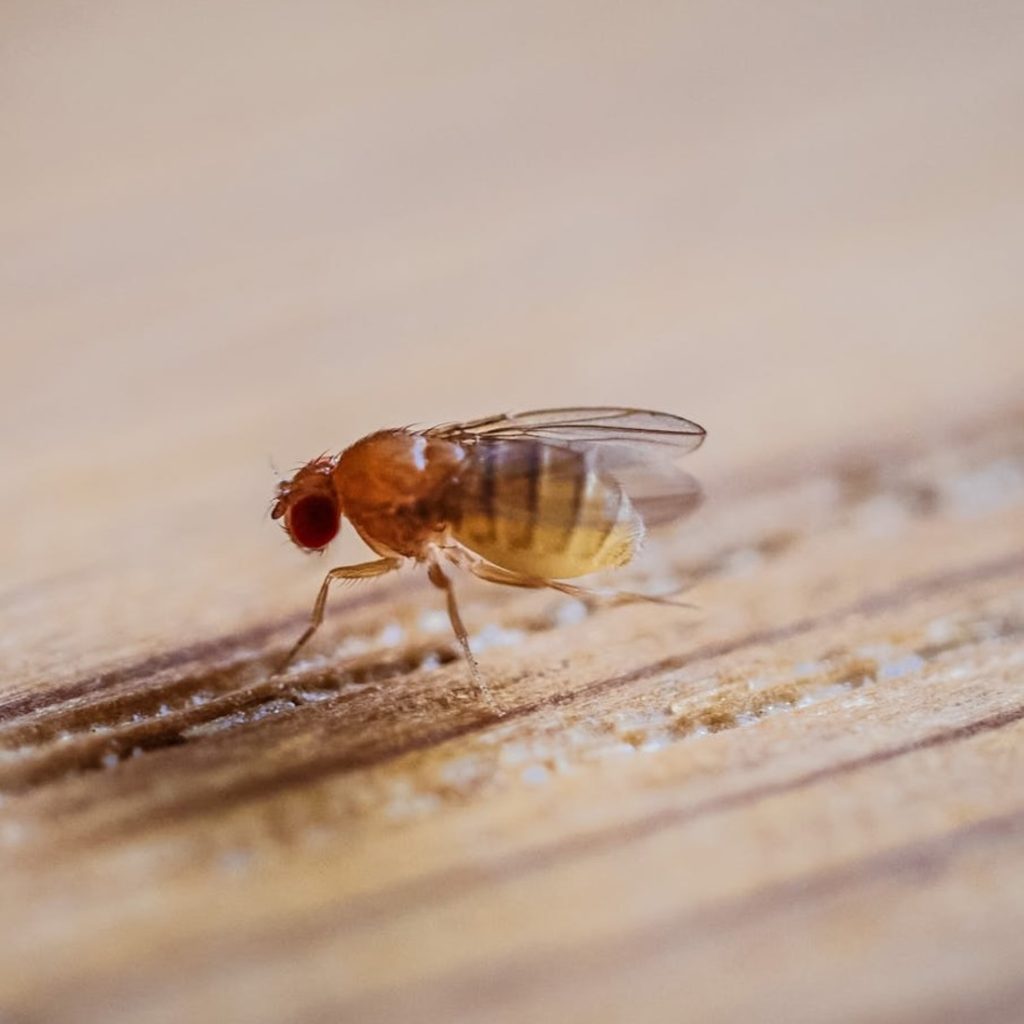
Fruit Flies
Fruit flies (Drosophila melanogaster) are 3mm long pale brown flies with large red eyes. Fruit flies can lay as many as 500 eggs at a time, making them a prolific feature of many commercial and domestic kitchens.
While their appearance is distinctive, you can usually distinguish fruit flies by where they are. Fruit flies will usually lay eggs and spend time around fermented fruit, so if you fruit trees in your garden, you may notice these minute flies.
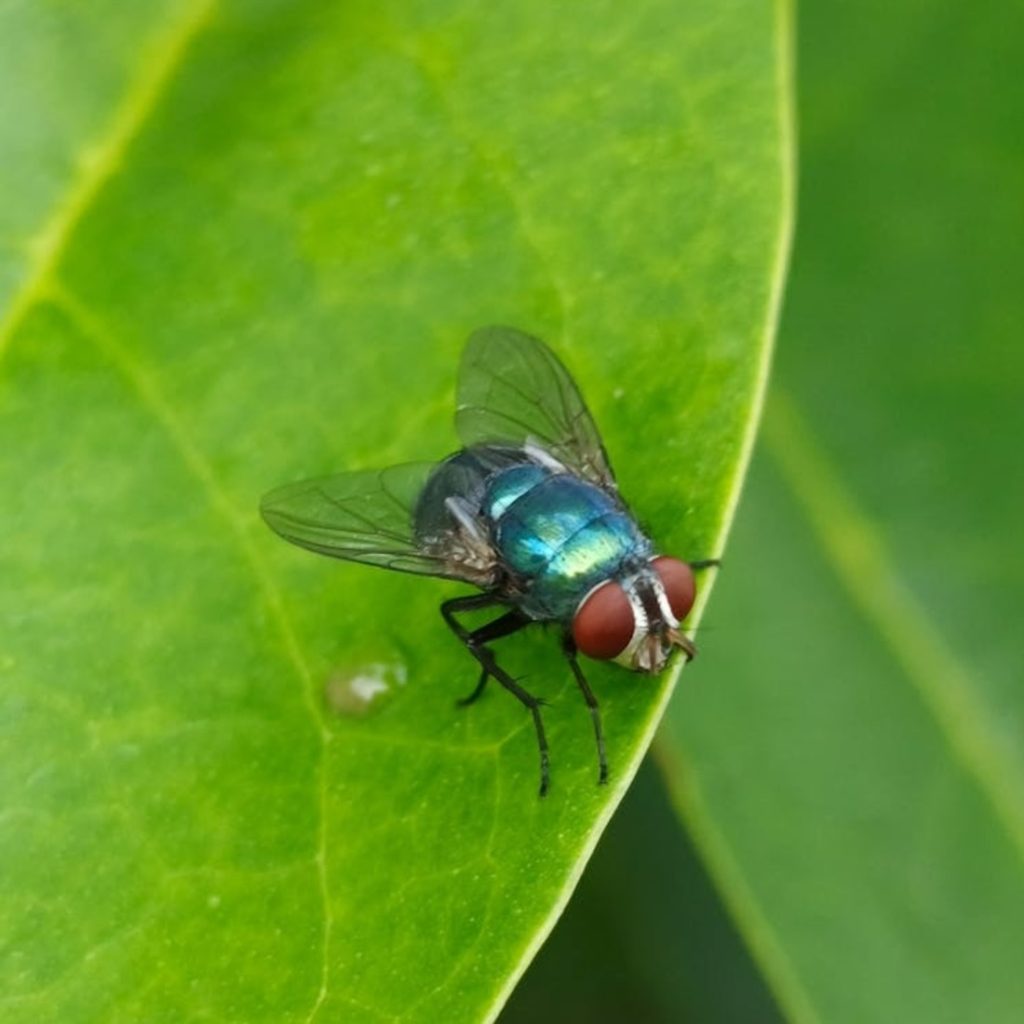
Bluebottles
Part of a group of flies known as blow flies, bluebottle flies (Calliphora vomitoria) are large flies at between 6-14mm in length. They are easily identifiable thanks to their metallic blue bodies and red eyes.
Adults eat nectar and sugary substances, but they lay eggs in dung or decaying animals, which means they can spread disease quickly.
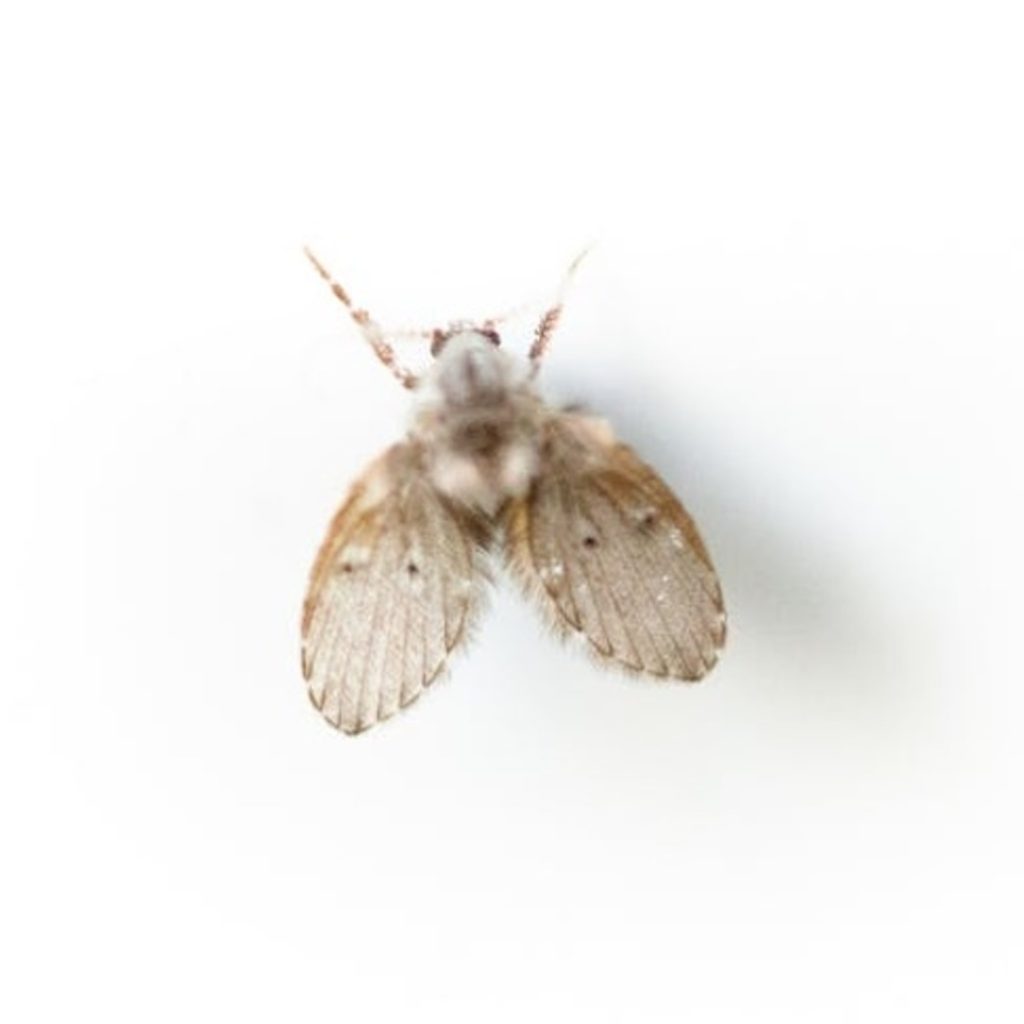
Drain Flies
As the name suggests, drain flies (Psychodidae) are tiny flies that live inside drains and other damp spaces. They feed on sludge and detritus in your drains, such as soap suds, toothpaste residue and other semi-liquid mess.
Being between 2-5mm in length, drain flies are usually identified by their presence in your drains. Whether in your bathroom sink, bathtub, shower drain or kitchen sink, seeing flies buzzing around your drains or plug holes is a sure sign of drain flies.
Tips For Identifying Flies
Many of these fly species are minuscule: some as small as 1-2mm in length. So, it can be difficult to spot distinguishing marks, especially when they’re flying fast. Here are some easy ways to identify the fly species you’re dealing with.
- Appearance: As mentioned, many fly species are incredibly small, but you may notice dead flies in your house that you can check. Look at their size, colour and wings.
- Location: Some species, such as drain flies, will live in a specific location, in this case your drains. Others, like fruit flies, are attracted to certain foods, in this case, rotting fruit and other sugary substances. Where you find the flies can potentially help you figure out what species they are.
- Bites: Some fly species bite humans, but they don’t have stingers like bees or wasps, so if you find a puncture wound from a sting, this is most likely another insect pest. Some large flies, like horse flies, have painful bites, so look out for them.
If you’re in any doubt what species of fly you’re dealing with, get in touch with your local pest control provider.
What To Do If You Have A Fly Infestation
Now you know about the common fly types found in the UK, you can start to think about what to do if you have a fly infestation.
Flies are a common occurrence, especially during warmer months, and it can be difficult to stop them from getting inside through open windows or doors.
When flies do get inside and start breeding, that’s when problems occur. Flies inside your home or business premises can cause irritating and spread disease, as they often land on household waste, faeces or decaying flesh before sitting on human food or food preparation areas, spreading bacteria and causing a health hazard.
Simple steps like keeping waste bins covered and storing food in airtight containers can help mitigate the risks of fly problems. Also, if you can’t keep your windows closed, you could try fitting a fly screen to prevent flies and other winged insects from entering.
However, for a major infestation, you will need professional pest control. Pest In Peace can get rid of flies and provide you with pest proofing to reduce the chances of them returning.
While our fly control services are commonly used by businesses across Cheshire, we also work with domestic properties to ensure flies can’t cause issues.
To get expert fly removal for any fly type, contact us on 07980 597423 and a member of our team will be happy to help.
